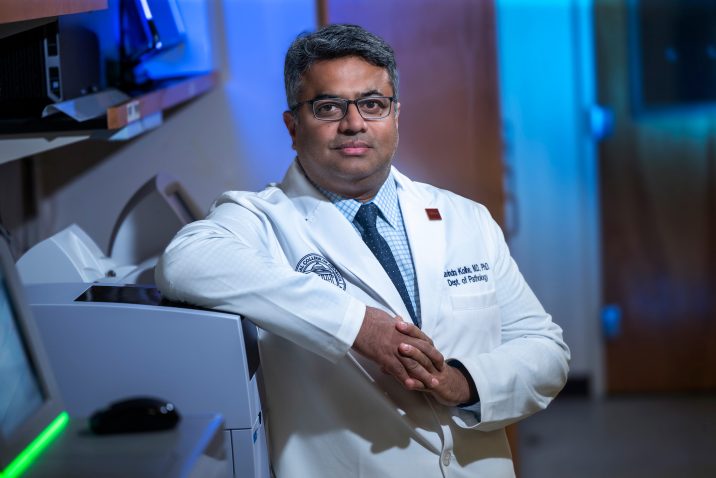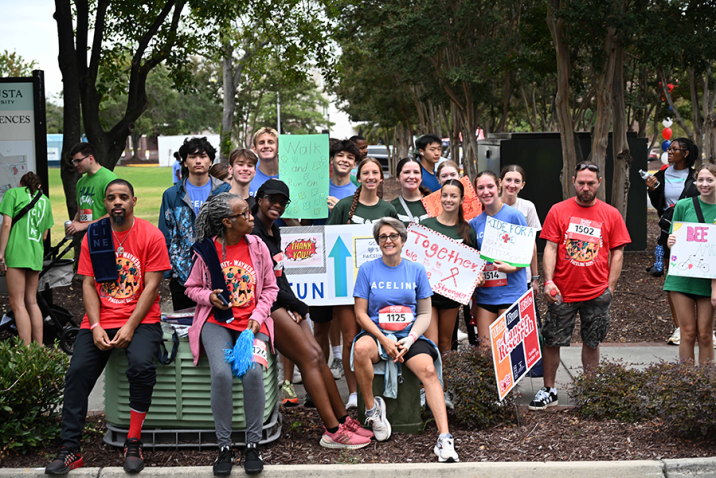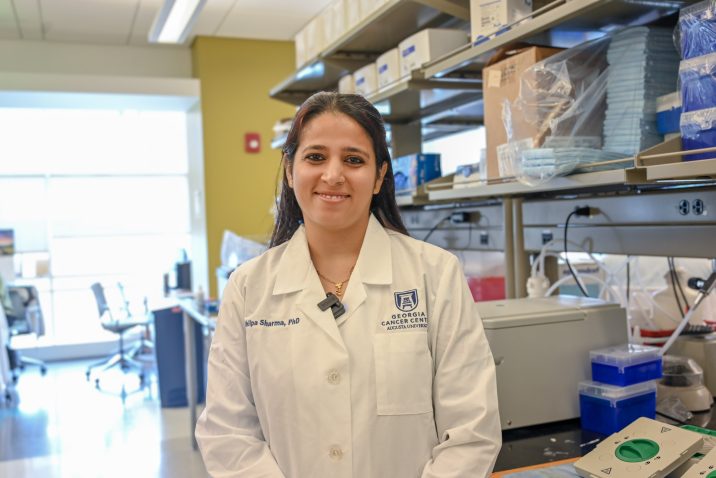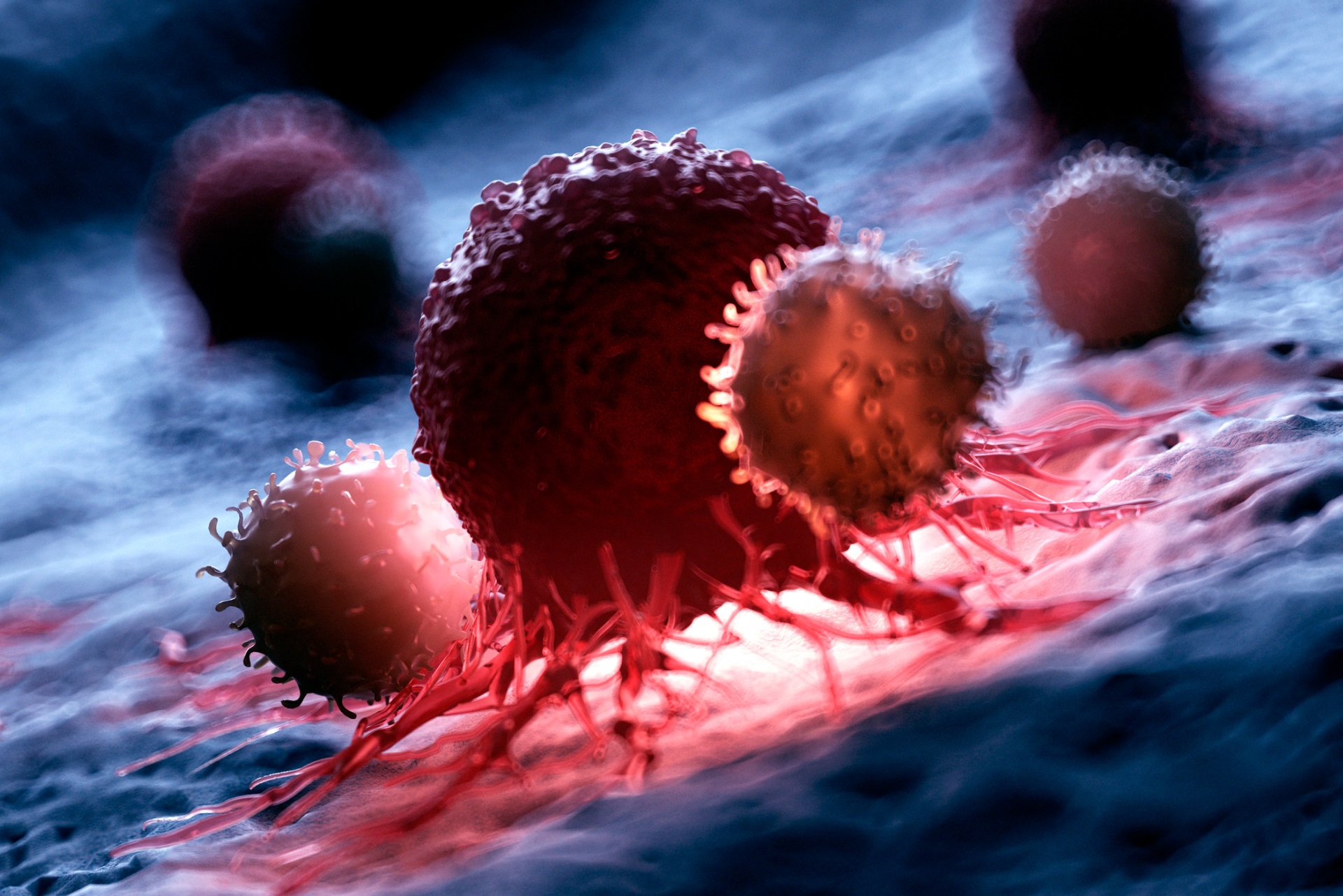Revolutionary genome mapping tech targets childhood brain cancers
"We will be able to make a more specific diagnosis, better classify the cancer, give a better prognosis and enable better therapy choices," says Ravindra Kolhe, MD, PhD.

The Georgia Cancer Center M. Bert Storey Research Building provides quality research space to promote multidisciplinary collaborations and translational research, which is essential to creating an environment that promotes innovation.
The research and innovations developed at the Georgia Cancer Center ultimately influence the global network of cancer care. Our team fights for far more than just Georgians. The learnings achieved through the care of local patients has wide-reaching implications for creating tomorrow’s standard of cancer care. Through facilitating first-in-the-nation trials and growing a depth of understanding only available through a multidisciplinary approach, the Cancer Center team is equipped to deliver treatment advancements that will be applied in facilities across the world.
Our research approach supports important National Cancer Institute goal of ensuring every cancer patient has access to the newest and most innovative clinical trials in the nation. Clinicians and researchers work together to initiate new research protocols based on the clinician’s interaction with the patient. Each cancer patient receives personalized treatment through the interaction of the multidisciplinary team of clinicians and allied health professionals.
Georgia Cancer Center Research Programs
Health Sciences Campus
GCC - M. Bert Storey Research Building
1410 Laney Walker Boulevard
Augusta, GA 30912

"We will be able to make a more specific diagnosis, better classify the cancer, give a better prognosis and enable better therapy choices," says Ravindra Kolhe, MD, PhD.

"It was wonderful seeing so many coming together to celebrate the people participating in PaceDay 2025," says Jorge E. Cortes, MD.

"This is a newer treatment approach, but the initial results have been promising," says Shilpa Sharma, PhD.

In addition to the bike ride and 5K run/walk, there will also be stationary bikes with an instructor offering several spin class sessions during the day.
Research at the Georgia Cancer Center’s M. Bert Storey Research Building focuses on the most promising pathways for the prevention and treatment of cancer. Several of our researchers are involved with investigator-initiated clinical trials, transitioning their research into the clinic.

Cancer Immunology
The principal goals of the program are to elucidate molecular pathways and cellular processes active in tumor microenvironments in order to develop, characterize, and apply immunological approaches to prevention, diagnosis, treatment, and monitoring of premalignant and malignant diseases.

Cancer Prevention, Control and Population Health
Each member of the Cancer Prevention, Control & Population Health Program reaches out to community organizations, schools and other civic groups to promote the importance of prevention, early detection and regular screenings and particularly in addressing, can health disparities and health equity.

Molecular Oncology
The overall goals of this program are to understand the fundamental cellular and molecular processes that contribute to cancer development and progression. The research interests of the program can be divided into three broad themes: Cancer Genetics, Epigenetics, and Chaperone Biology.
As you explore the Augusta University Research website, you will find information of value to students and trainees, investigators, research sponsors, and our community, including research participants. You will find web pages for each research area including technology commercialization, sponsored programs, animal research, and human subject research.
The Georgia Cancer Center supports shared research resources and facilities providing important support to members of the Cancer Center and their collaborators. The various resources offer access to state-of-the-art technology and computational support at an affordable cost.
The Georgia Cancer Center provides dedicated support to its researchers for the writing and submission of extramural and intramural grant applications. The Grants Administration Office supports all pre-award and post-award activities of faculty within the Georgia Cancer Center and assists them in preparing their applications for submission, including development of budgets, as well as managing their awards. The Office of Grant Development assists faculty within the Georgia Cancer Center with preparation of the scientific and text sections of grant proposals.
This is a “one-stop resource shop” for GCC Researchers. We provide numerous resources for you to use as you write your grants: the official GCC Grants Process, descriptions about our facilities (e.g., AU, GCC, shared resources, physical and intellectual environment), where to find NIH grant documents and instructions, and much more.
Our research teams have been divided between four areas of laboratory research. Our research approach supports important National Cancer Institute goal of ensuring every cancer patient has access to the newest and most innovative clinical trials in the nation. Clinicians and researchers work together to initiate new research protocols based on the clinician’s interaction with the patient.
The PRMC provides internal scientific review for all new cancer-related clinical research studies within the Georgia Cancer Center.
The Georgia Cancer Center at Augusta University is dedicated to reducing the burden of cancer in Georgia and across the globe through superior care, innovation, and education. Through unprecedented expansion, the Georgia Cancer Center is providing access to more first-in-the-nation clinical trials, world-renowned experts and life-saving options.
Follow the Georgia Cancer Center